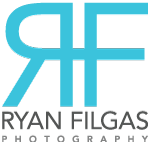Marketing myself in a big city is a lot of work. Everything I thought I knew about business is constantly tested, and the commercial industry appreciates the “art work” I do, but doesn’t understand how I will be able to use it from a commercial standpoint. I think this partly due to my own faults as an artist. I haven’t fully fleshed out my photos into any cohesive series, and instead have ideas, bits and pieces, moments instead of stories. I do a lot of environmental work, but haven’t filled that out with up close portraits, details, still life projects. In order to take on commercial work in my “style”, whatever that is, I need to do personal projects with a commercial bent to them, or I need to flesh out my art projects into something cohesive, communicative, and repeatable.
In the end I need to create. Until your portfolio is undeniably different, good, interesting, useful, the best thing to do is to make work, and put it into the world. I previously thought that once you had decent enough work, if you just marketed yourself, you’d be able to build a living, but it’s not true. I really should have been listening to the photographers I’ve looked up to. Tim Tadder is a photographer who I’ve listened to in interviews and he seems to have hit the nail on the head. You have to make work so different, so amazing, and so frequently, that the world can’t possibly ignore you if they wanted to. All of the great photographers I know of do personal projects, and those projects have gained them more notoriety than any of their normal commercial projects, and those personal projects have brought them much more clientele than simply being the best that they can be.
Recently I learned a few lessons that hit me hard.
It isn’t enough to be unique. I made a timelapse for the first time, from a perspective only a select few people have access to. It barely made a blip. People can make timelapses on their phone, and frankly can’t tell the difference if the tripod is standing still, and you used an expensive set up. Different isn’t ever enough if it has no heart, you have to be exceptional and relate to other people.
Technical prowess is important, but it doesn’t mean anything. Photographers for better or worse get work because they’ve made a personal connection, and they have a lot of “good enough” work in their portfolio. If it looks good on a computer screen, but it isn’t perfect, people rarely care. The perspective, and the story being told will always be more important than technical perfection.
Having a good portfolio isn’t enough if it’s not the right portfolio for the work you want to get. If your portfolio is so different they have no idea how to use it, You have to show them how.
Be vulnerable, ask questions, and be willing to address your faults. It doesn’t matter how much you like your own work. You must always be improving and pushing.
You must make work in order to get work. Don’t ask clients for their money if all you have is an idea, and no past work to draw from, or no coherent plan to execute said work.
Make connections, but remember that a connection is never the end game, it’s the beginning. Making an initial connection and stopping there, will make you forgotten.
